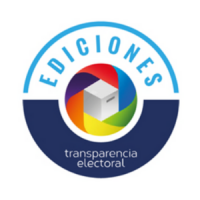
Transparencia Electoral Editions is our own publishing house, an initiative to facilitate the publication of studies and research carried out by the organization’s team and other works in conjunction with partner organizations. The label has published 8 books to date, only available in Spanish for the moment, and you can find them here to download for free.













